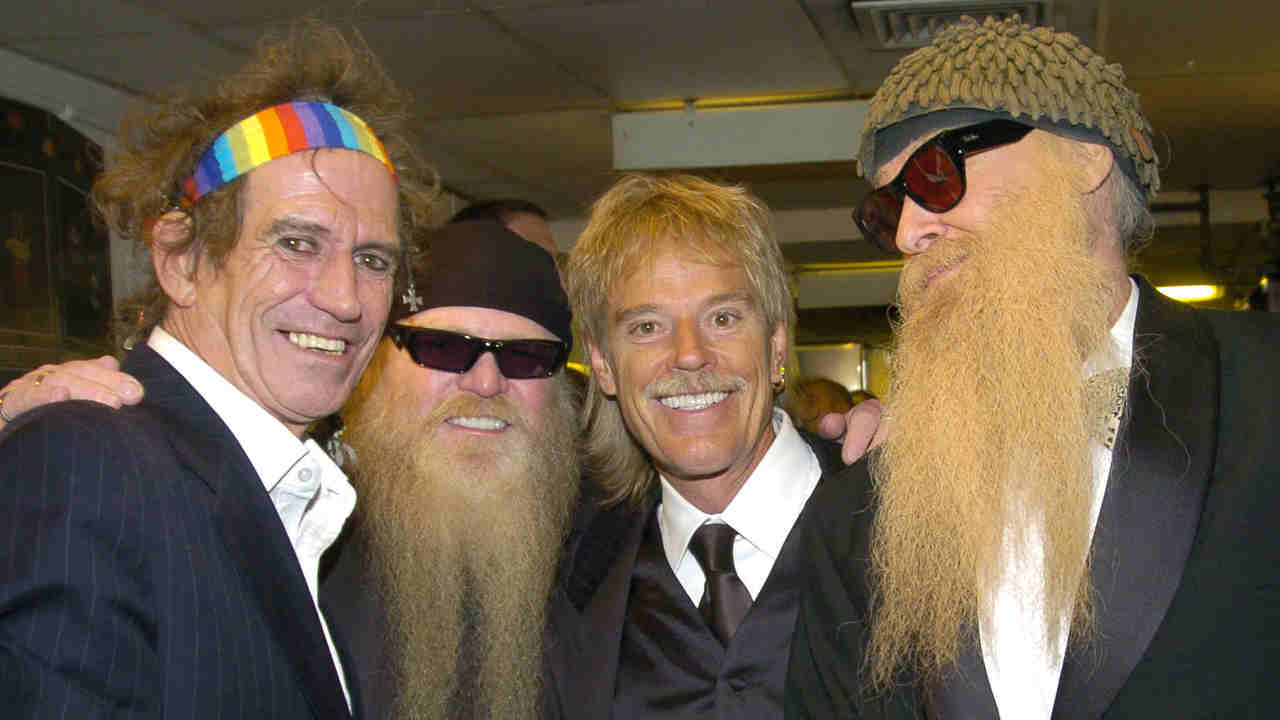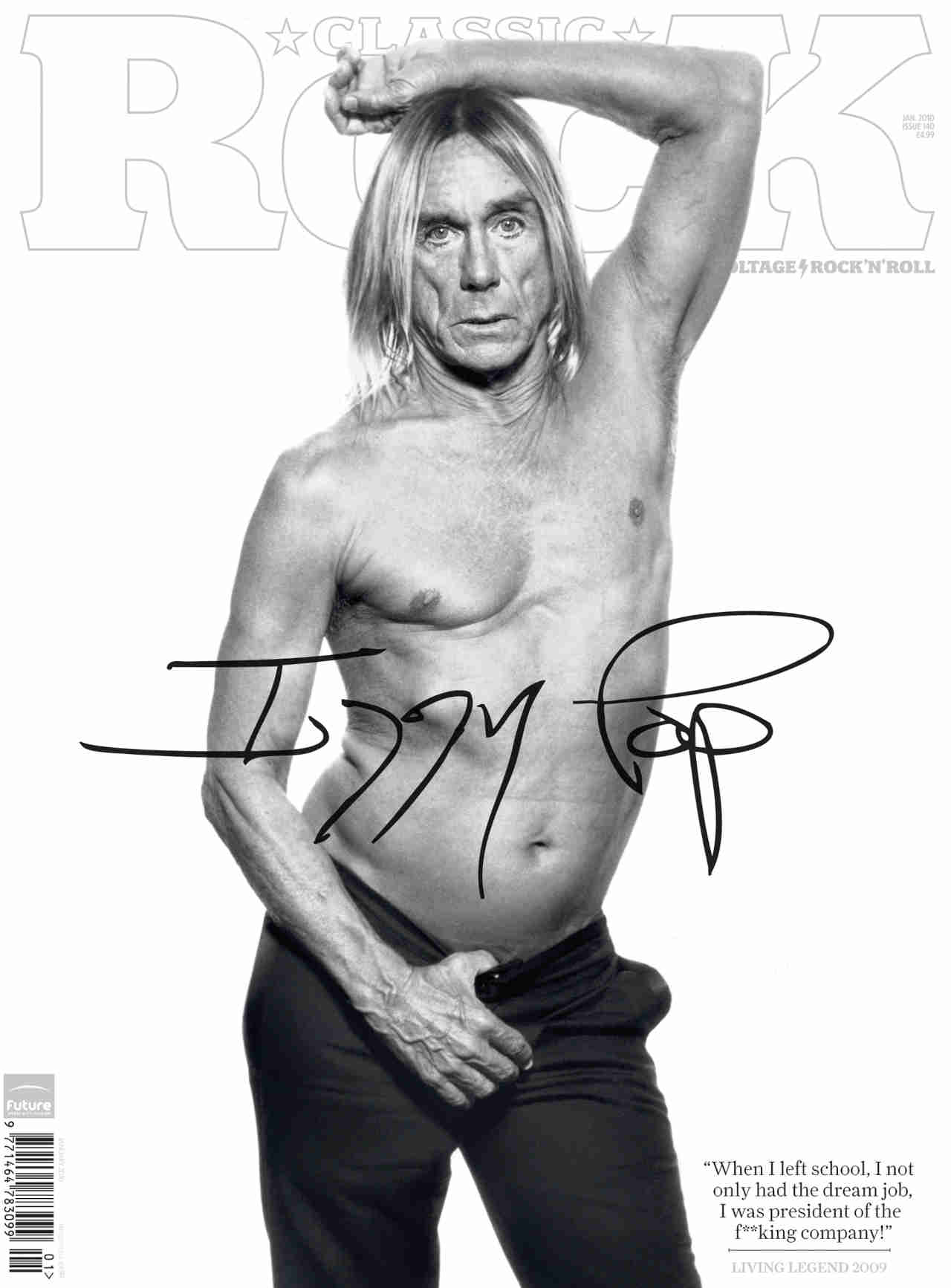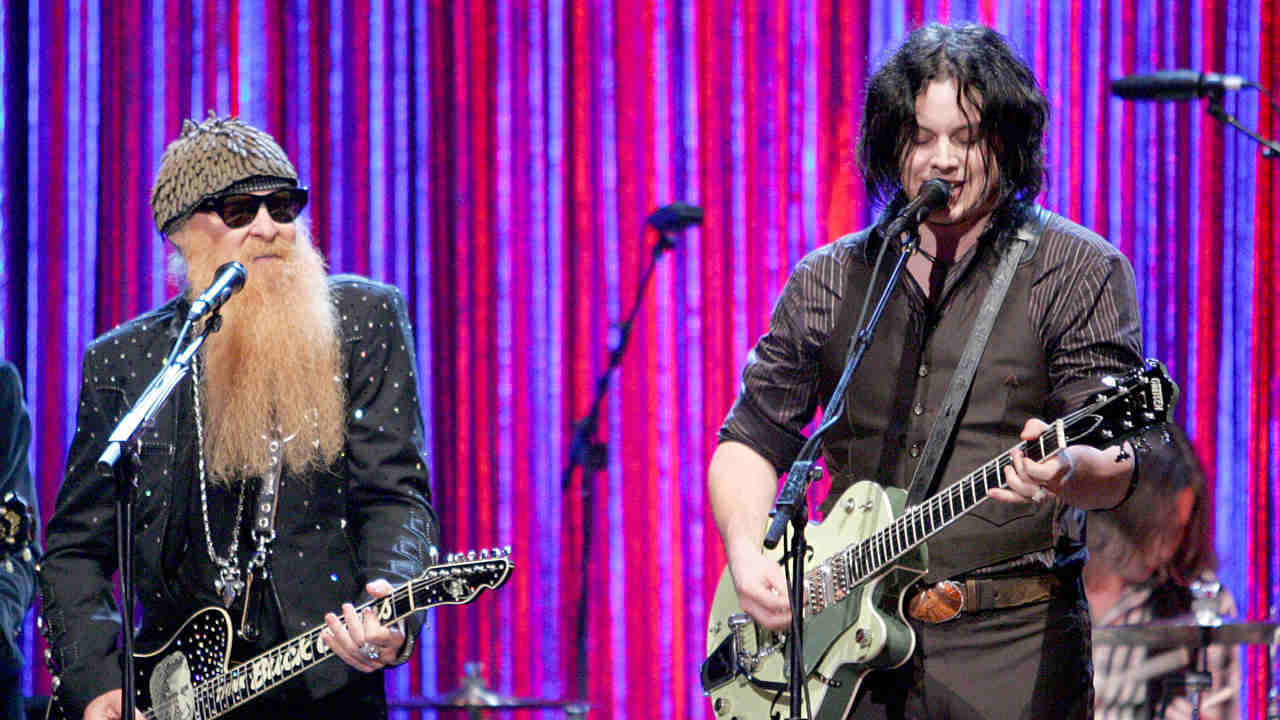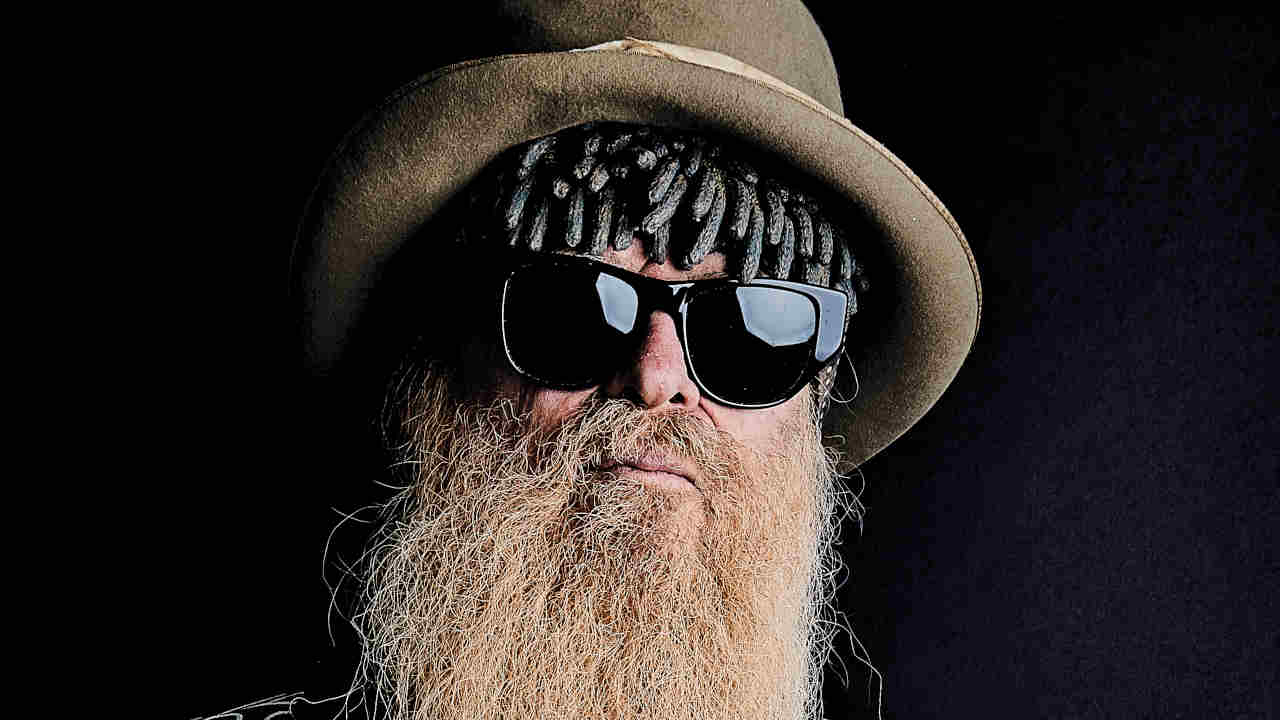During a career that dates back to 1969, ZZ Top have toured with some of the rock’n’roll’s finest, and were inducted into the Rock And Roll Hall Of Fame in 2004 by Keith Richards – ZZ Top themselves having performed the honour for Cream in 1993. In 2009, gentlemanly singer and guitarist Billy Gibbons lifted the veil on a few of the famous friends he’s made while travelling the rock’n’roll highway.

Jimi Hendrix
We toured with him in 1968. It was a real mind-bender and eye-opener to say the least. As most now know, Hendrix, either consciously or subconsciously, made a decision to invent things to do with a Fender Stratocaster that it had not necessarily been intended for. He did it very well, too. I was 18 at the time, and somehow the organisers saw fit to book us in the hotel room across the hall to his room. That was convenient to allow me to ask him the obvious question: “How do you do that?”
I remember that this was a long time before hotels had stereos in their rooms, and each day there would be the delivery of a rather heavy and cumbersome hi-fi console player that was the size of a small Buick. It was dutifully installed for Hendrix to be able to listen to his favourite discs. The one I really remember him playing the ass off was the first Jeff Beck Group album, Truth. Hendrix was mad about it, totally OTT about Jeff’s playing. Oddly enough, Hendrix was all too willing and ready to include blues licks in his arsenal of guitar offerings, which had fallen out of favour in the States with most black entertainers.
I got to play on stage with him at the time, which is quite well-documented, but it was what went on behind the scenes that really captured the magic of the moment.
BB King
We’ve been friends since 1972. Our first encounter was way before then, back in Houston, Texas. But our first professional engagement was in 1972. I was backstage in my dressing room when he took an interest in my guitar and wanted to see what it felt like. I was only too happy to say yes. At the time, I was playing some pretty heavy-gauge strings, and BB said to me: “These are mighty heavy. Why are you working so hard?” He handed [his Gibson guitar] Lucille over to me and said: “Give this one a go.” I discovered the strings were extremely light, which kind of made perfect sense.

The Rolling Stones
The Stones had accepted an offer to make an appearance in Hawaii in 1972. It was three shows: a Friday night, a Saturday afternoon matinee and a Saturday evening. When the announcement was made it seemed that every band on the planet was vying to land the opening slot. Even today The Rolling Stones are ‘it’ as far as most bands are concerned. Somehow we got the call to take those three dates in Hawaii.

I remember walking out on stage in our standard attire of cowboy boots and a cowboy hat – which was something of a mystery to people back then – and someone in the front row shouted out: “Oh my God, they’re a country band!” Obviously that wasn’t particularly fashionable at the time. So we realised we had to get stuck in straight from the get-go to shake off this misleading image.
But we got along famously with the Stones and managed to hang out with them for a few extra days. We were just hanging out on the beach and sipping cool libations; Keith was totally living the rock’n’roll lifestyle at the time. But what a lot of people don’t know or realise is Keith’s unending devotion and calling to being what is true as a musician. That was very apparent then, although I have to say he was certainly a lot more colourful when it came to the extra-curricular stuff.
Cream
Make no mistake, ZZ Top didn’t just happen upon becoming a trio because it was easier; it’s a lot more challenging. But Hendrix and Cream were at the top of the chart as far as ZZ Top’s book was concerned, and it was through those early influential days of attempting to emulate those sounds and styles that brought us together. It was a real honour to be associated with Cream and bring them into the spotlight at the Rock And Roll Hall Of Fame.
I met Clapton in Houston, Texas. Cream had been booked to appear on an early US tour, and a local promoter who booked that tour also owned a venue where [Gibbons’s pre-ZZ band] The Moving Sidewalks used to rehearse. Clapton was curious to see what the local music scene was like and he dropped in to have a look at the venue. We were on a break, met him, and we got along quite well. Back then, talking about music was the order of the day, and we just got a lucky break meeting him.
Nickelback
Ha ha ha… Rockstar was quite an unexpected success. We were touring the US, up the North West. It was the day before our own show, they were playing and we were curious, so we popped down to catch the band’s performance. You have to note the great vocal stylings that Chad Kroeger can bring to the party. Man, he can sing for days.
Anyway, after that inauspicious first meeting, when the time came for them to get back into the studio, I believe Chad had the idea to complete Rockstar as a studio-based song. He had most of it but felt he needed something extra, so he called me up to see if we could make some sense of it. He dreamed up the vocal inflection that I sang, and I reckon it came out okay.
Kid Rock
I spoke to him just only this morning. He’s working with Rick Rubin. I was keen to ask him a few questions because we’re about to start working with Rick just after the first of the new year. There was dead silence. And I said: “Well, I’m waiting. What’s it like working with Rick?” And he says: “I’m still trying to figure it out!” Ha ha ha. He says: “We’re making sounds, but I’m not sure I can describe it yet.” So we’ll see. Kind of exciting news.
Hank Williams III
He’s another talent. He’s frighteningly the ghost of his grandfather [Hank Williams]. Good grief. He sounds like his grandad and he’s a living example to back up the idea of genetics skipping a generation. His old man [Hank Williams Jr] is really quite different from his dad. But come around to the generation after and it returns right to his granddad.
He’s a great entertainer himself as well. He’s torn between keeping on the tradition and his real passion, which is grindcore to the end. That’s his true love. I was lucky enough to work with the New Orleans drummer Joe Fazzio, who holds down a spot with Hank and also played with Superjoint Ritual. And he was telling me that they’d go out as a double bill, and Hank III would give his audience fair warning that the first half of the show would be to the delight of those who liked country music. Then he’d say: “We’re gonna take a small break now, and those who can’t take it better leave the building, cos we’re going to get real heavy.”

Jack White’s another very interesting character. And quite a talent, I may add. He has my vote of confidence inasmuch as his personal preferences are never allowed to be ignored. And he is quite vocal about how he wants to do things. He’s either quite strident about whether he knows exactly what he wants, or even if he knows nothing it doesn’t stop any forward motion. He works all the time, too, he’s got something going on all the time. And I like his approach to that end. He says it’s a stimulus rather than being exhausting. Some folks would buckle in the face of such a work schedule but he’s honest about it and he gets off on it.
Al Jourgensen
I was a big fan of Ministry from their early days. Again, Houston, Texas springs to mind. They blew through town playing a weekend warrior venue, at a place called Numbers. This was a wild venue, with the stage in the middle of the room and the audience on all four sides. It was such an insane place, and its reputation drew in the fiercest of the fierce, which meant the owners had to put up chicken-wire around all four sides of the stage. Jourgensen made the most of it, climbing around like a caged beast. I knew right then that this was a guy for me. We stuck around and became friends from that moment.
Much later he was recording at Sonic Ranch Recording Studios, a superb outfit that houses three studios. It’s one of the biggest in the world and even has its own pecan orchard. Al was wrapping up this Revolting Cocks album and he offered me to pop along and lay down some slide guitar work. That was a perfect time for some rocking and rolling.
Muddy Waters
We had Muddy on tour with us back in 1983, right before he passed on. It must have been the Eliminator tour, and we had him along and got to know him and his band. It was quite illuminating.
I actually first met him back in 1976. Dusty Hill’s brother, Rocky, was a shining light in chasing down these blues masters and bringing a significant amount of attention to them, and he introduced us back then. We were interpreters, they were the inventors. But Muddy, well he was just something else, man.
People ask what I listen to, and there’s a certain sprinkling of contemporary sounds like Jack White and the Black Keys, but I have to say it’s a slim list from the modern side. But going way, way back, we’re still listening to stuff that came out between, say, 1949 to 1957, people like Muddy Waters. It’s the stuff that I keep on going back to. It’s very enduring.
Originally published in Classic Rock issue 140, December 2009

![Nickelback - Rockstar [OFFICIAL VIDEO] - YouTube](https://img.youtube.com/vi/DmeUuoxyt_E/maxresdefault.jpg)
